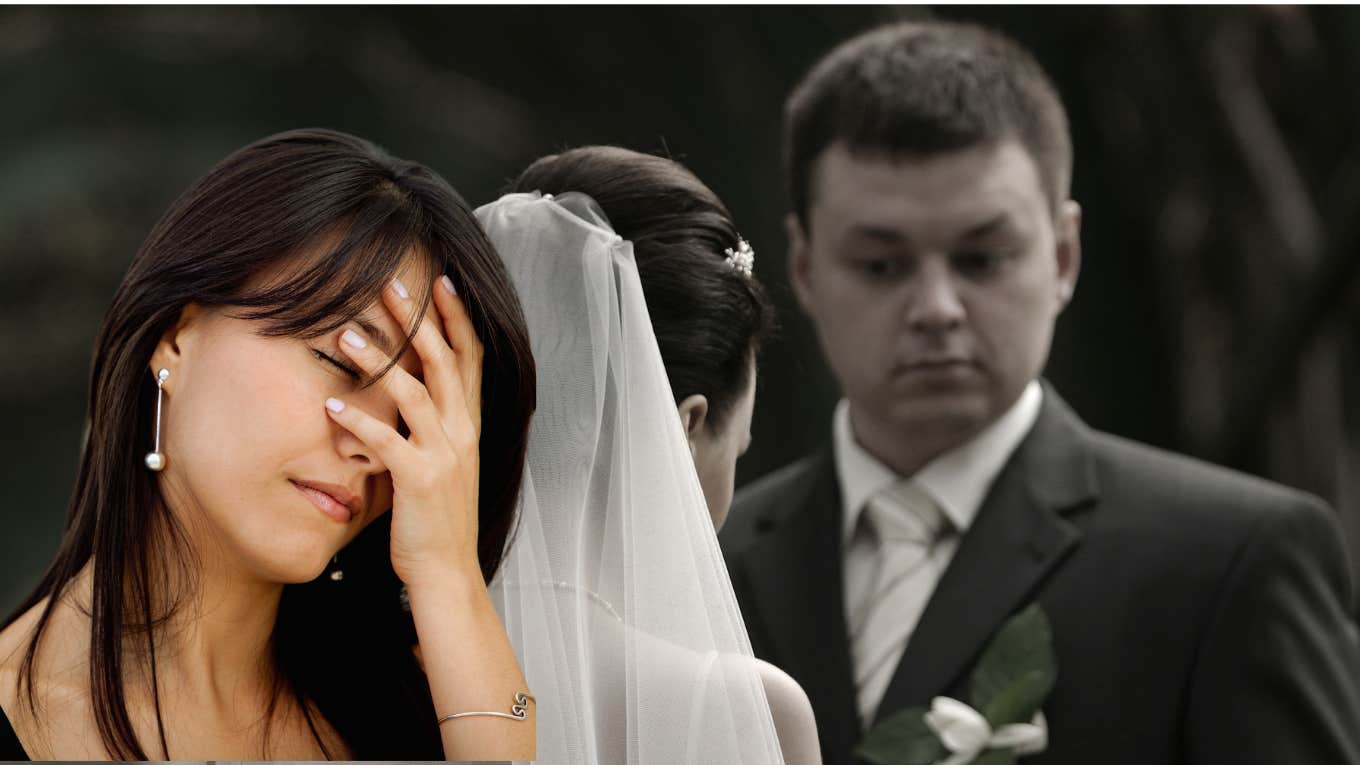Marrying After This Age Increases Your Chances Of Divorce, According To Research
Study says a certain age may increase your chance of separation.
 sansara, Latino Life | Canva
sansara, Latino Life | Canva In 2015, sociologist Nicholas Wolfinger released a report analyzing divorce data for the Institute of Family Studies. His conclusion? The longer you wait to get married, the less likely you are to get divorced. After 32, however, your divorce risk starts increasing by 5 percent per year. I'm not buying it. As someone who has been a divorce lawyer for over 20 years (and who personally didn't get married until her 40s), I've analyzed Mr. Wolfinger's "analysis" and can sum up my conclusions regarding his report about marriage in one word: Garbage!
I'm no numbers nerd, and I'll be the first to admit that analyzing statistics has never been my strong suit (thankfully, law school focused on simpler things like studying the tax code). But let me just say, politely, that I question this study's "conclusions." Personal opinions are not conclusions. Not only did the analysis require some funky mathematical manipulation of the raw data, but the "conclusions" are little more than unfounded, extremely offensive personal opinions.
Marrying after 32 increases your chances of divorce, says study
According to this report, the reason that people who marry after 32 have a higher divorce rate is because they are "the kinds of people who are not predisposed toward doing well in their marriages." They're often "congenitally cantankerous" or "have trouble with interpersonal relationships. Consequently, they delay marriage, often because they can't find anyone willing to marry them." In short, it seems that the point of this "analysis" is that if you're not married by age 32, there's something wrong with you. I guess waiting to get married until you graduate college and have a career (capable of supporting you and paying down your student loans) makes you some kind of sociopath.
Waiting to marry the right person — even if that person doesn't show up until "later" in life (after 32, maybe) — must show that you have serious relationship issues. Similarly, waiting to marry until you're mature enough and have the time to handle marriage is surely an obvious sign that you won't be able to make your marriage last! Excuse me for being a bit sarcastic, but it's tough enough being a single woman over 30 who is trying NOT to panic about the fact that her biological clock is ticking ... loudly.
It's already unnerving to watch your friends get married while you try to put off your relatives' probing questions about why you're not doing the same thing. Do we need this kind of "analysis" out there to make us feel worse? In the mid-1980s a Newsweek article boldly declared that a single, college-educated 40-year-old woman was more likely to die in a terrorist attack than ever walk down the aisle. Even though Newsweek later retracted that article and the "study" on which their statement was later found false, an entire generation of women still worried they'd aged out of all prospects of finding love or getting married.
It's time to stop this practice. It makes much more sense to encourage people to listen to their hearts and take the time they need to marry the right person for them ... at the right time. As for me, I'm proud to say that I've personally proven both studies wrong. I managed to get married in my 40s and stay happily married for longer than the five years that, according to this study, my marriage would supposedly last. And I'm also more than college-educated and — thankfully! — have never been involved in a terrorist attack. While I'd like to think that I'm special, the truth is that what I did isn't really that unusual. I found happiness, love, and marriage after 32. If I did it, so can you.
Karen Covy is a divorce coach, mediator, lawyer, speaker, author, and entrepreneur. She has appeared on numerous television and radio programs and has had bylines appear on Chicago Tribune, Huffington Post, The Good Men Project, DivorcedMoms, and Mama Mia, among others.

